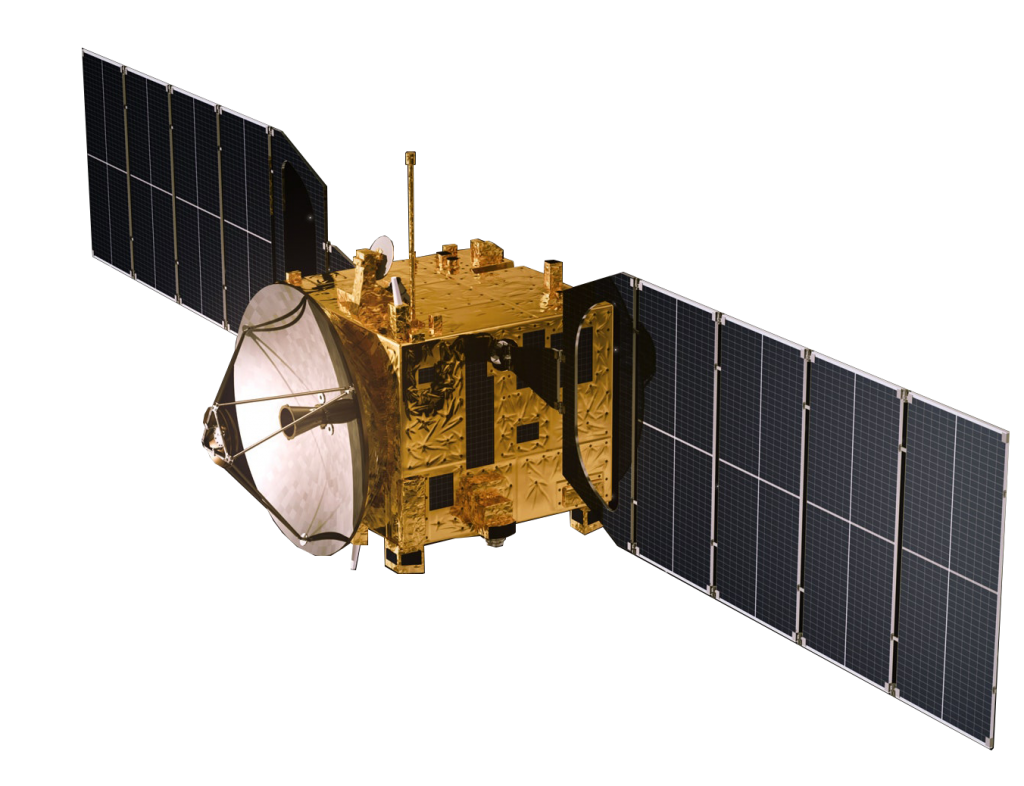Artist Rendition for example purposes only.
THE SIGNIFICANCE OF LAUNCH VEHICLES
Launch vehicles serve as the gateways to space, enabling the deployment of satellites, space probes, and other scientific instruments into orbit and beyond. They play a pivotal role in advancing our scientific knowledge, facilitating global communication, and driving innovations across multiple industries.
With our expertise in designing, assembling, and launching this technology, we stand at the forefront of the space industry, poised to
shape the future of space exploration.
EMPOWERING SPACE MISSIONS
At Merida Aerospace, we emphasize our extensive proficiencies in launch vehicle development. Our cadre of skilled engineers, specialists, and space aficionados diligently collaborate to conceptualize and construct rockets tailored to the distinct requirements of individual missions. Whether the objective pertains to satellite deployment for terrestrial observation, telecommunications, scientific inquiry, or interstellar pursuits, our dedication lies in furnishing unmatched levels of performance and dependability
VERSATILITY IN SPACE EXPLORATION
Our launch vehicles are designed for versatility, accommodating various payload sizes, orbits, and mission objectives. From small payloads to heavy-lift missions, we ensure that every aspect of our rockets is tailored to maximize efficiency and success.

THE MERIDA AEROSPACE ADVANTAGE
Expertise in Rocketry
Extensive experience in the field
of launch vehicles
Full-service Solutions
From concept to launch, we offer end-to-end support
Regulatory Compliance
We ensure adherence to international
standards.
Client-Centric Approach
Tailoring launch vehicle solutions to
match specific vision and objectives
YOUR PARTNER IN SPACE
Merida Aerospace is your partner in pioneering the future of space exploration. Join us in unlocking the limitless potential of launch vehicles to push the boundaries of scientific discovery and shape a new tomorrow.
Small Rockets Aim for a Big Market Rocket Lab debuts its Electron launcher from New Zealand.
By Guy Gugliotta
AIR & SPACE MAGAZINE
With a flawless launch and the successful release Of four
small satellites in low Earth orbit, Rocket Lab’s new
Electron rocket nailed its final tryout on January 21. “We’re
done testing,” says company CEO Peter Beck. “We’re ready
for full commercial operations.”
Los Angeles-based Rocket Lab is the first private company
dedicated to small satellites—which can be anything from
tiny, three-pound CubeSats to spacecraft the size Of a
washing machine. The two-stage Electron rocket can lift up
to 500 pounds to low Earth orbit.
Until now, smallsats have had to piggyback on rockets
delivering larger satellites for better-paying customers, so
they rarely got to call the shots. “They have no control over
schedule and orbit,” Beck says. Rocket Lab aims to fix that.
From the company’s launch pad on the east coast Of New
Zealand, rockets can reach a wide range Of altitudes and
inclinations to the equator to suit the smallsat customer’s
needs.
The potential market is huge. Today an estimated 200 small
satellites are launched per year; Swedish space technology
company AAC Microtec estimates that by 2023, the number
will rise to more than 500. CubeSats, which have become
much more sophisticated in the last decade, will make up a
large percentage Of the increase, and are one “target
market” for the Electron “but not the only one,” according
to a Rocket Lab spokesperson.
The company is using several innovative strategies to hold
down costs. The Electron is built of carbon composite,
which saves mass, and its engines are made using 3D
printers, which saves labor. The Electron’s fuel tanks—its
Rutherford engine burns kerosene and liquid oxygen—are
40 percent lighter than traditional metal tanks.
Rocket Lab will charge a base price of $5.7 million for a
dedicated launch to orbit, but if many CubeSats share the
ride, the cost for the smallest ones could be in the
hundreds Of thousands Of dollars.
Cost isn’t the only factor, though. For Beck, ” the most
important thing” in rocket design is launch frequency. The
company expects to launch once per month by the end Of
this year, twice monthly next year, and is ultimately
licensed to launch “every 72 hours,” he says. Rocket Lab’s
manifest is booked for the next two years and has “a nice
backlog” Of clients waiting to fly. The payloads include a
dozen or so NASA-sponsored CubeSats sharing a single
flight this spring.
According to Carlos Niederstrasser, an engineer with
Orbital ATK who has tracked small rocket development for
several years, more than three dozen small satellite launch
projects are under way worldwide. Not all will survive, but
several are poised to start operations. Right behind Rocket
Lab is Long Beach, California-based Virgin Orbit, spun Off
last year from Virgin Galactic, Richard Branson’s space
tourism venture. Virgin Orbit expects to begin regular
flights this year Of its LauncherOne, which is air-launched
from a Boeing 747. Virgin Orbit can launch from any
latitude, on virtually any trajectory, and says it is fully
booked for 2018. The company hopes to be launching twice
a month by 2020, but, like Rocket Lab, doesn’t name its
customers.
“Long ago it was all about big, feature-rich satellites, but
they cost a billion dollars,” says William Pomerantz, Virgin
Orbit’s vice president for special projects. Today, he says,
technology allows customers to say, can make a tiny
thing. It won’t be as good as the Old thing, but I can launch
a hundred Of them, and if they don’t work Out, I can launch
some more.” And, Pomerantz adds, the industry is growing
fast: “Two players in this market are not going to be nearly
enough.”



